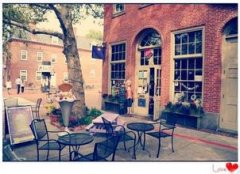A brief introduction to the flavor, taste and aroma characteristics of Colombian rose coffee beans

Of course, these are all old news now. Some small farms also get summer roses and are eager to grow their own roses.
However, the results are different, and this "star" variety seems to have different tastes in different geographical locations due to the influence of weather, soil and altitude. However, in the Aktenango region, we see typical rosy summer features: slender beans, changes during baking, and the elegant and unripe flavor of flowers, tropical fruits, and strong sweetness in the cup; these are the feelings that Rosa has always given us. Properly baked, they make you feel like sipping the fragrance of a bouquet of flowers. Maybe you don't know the story of Rose Summer, which was originally an ancient native species from Ethiopia and was brought into the coffee experimental garden in Costa Rica as a coffee sample. and was distributed to several small-scale farms for small-scale trial or rose summer ah, flower god, flower fragrance, bright fruit acid, a drink has an amazing feeling. In 2007, the International famous Bean Cup Test sponsored by the American Fine Coffee Association (SCAA) won the championship again, and the bidding price was sold at US $130 per pound, setting a record for the highest price in the history of competition beans.
After drinking a rosy summer, Huigan still has a charming peppermint aroma. In the past, the identification of top coffee went with Japan. More than 90% of Blue Mountains were exported to Japan, and 100% of Blue Mountains could not be bought in the domestic market. There is a king, a queen, the Blue Mountains of Jamaica and Kona of Hawaii, but with the continuous improvement of the standard of coffee-producing countries and the sharing of information, we are exposed to more boutique coffee. And this Panamanian rosy summer has become the new king of coffee in recent years. But there is no difference between good and bad, they are all top coffee beans. Good or bad can only be decided according to individual taste.
In the early years, the identification of top coffee mostly followed Japan, while Geisha, with its hurricane-like power, hit the coffee world. The coffee revolution was so fierce that the Blue Mountains of Jamaica and Kona of Hawaii, which had occupied the throne of the coffee kingdom for a long time, had to retreat. This wild species, which originated in Ethiopia, is now widely used in major coffee producing areas after numerous battles. And its best spokesman is the "La Esmeralda" manor from Panama, Esmeralda's rose summer coffee is the most famous coffee in the rose summer variety.
In 1931, it was exported to Kenya in obscurity from Geisha Mountain Mountain in southwestern Ethiopia, wandered to Tanzania and Costa Rica, was transplanted to Panama in the 1960s, and then went through nearly half a century before it became a blockbuster, beating the victorious armies of Bourbon, Kaddura, Kaduai and Tibika to win the first prize of the Panamanian National Treasure Bean Cup Test Competition in 2005, 2006 and 2007. In 2007, the International famous Bean Cup Test sponsored by the American Fine Coffee Association (SCAA) won the championship again, and the bidding price was sold at US $130 per pound, setting a record for the highest price in the history of competition beans. It is reported that the later Panamanian national treasure bean competition will be divided into two groups: Rose Summer and non-Rose Summer, so as not to be robbed of the brilliance of other varieties by Rose Summer. Rosa is a member of the Tibika family, but it became famous more than 70 years after leaving Ethiopia, and fulfilled the saying that Ethiopia is a treasure trove of Arabica genes. Giving a variety to go abroad is enough to stir up trouble in the coffee market.
Geisha, which is grown in many parts of the world, is the new king of boutique coffee. Ripe beans with high quality and high prices in Latin American countries such as Panama, Guatemala and Colombia seem to have some "wrinkles". Beans with such "sexy folds" are all to highlight their original taste and acidity, but if the quality of raw beans is not high, there will be some mixed smell. Such as the smell of decaying soil, grass and dry taste, which should be avoided by the baker, the baked rose has charming lemon and citrus aromas and super sweet honey cream flavor.
Flavor editor
The fragrance of flowers, tropical fruits, strong sweetness; these are the feelings that Rose Summer has always given us. Properly baked, they make you feel like sipping the fragrance of a bouquet of flowers. You may not know the story of Rosa, an ancient native species from Ethiopia that was brought as a coffee sample to a coffee experimental garden in Costa Rica and distributed to several small farms for small-scale trials.
Not many people followed Rose Summer until one day, Esmeralda Manor in Panama separated it from other varieties and won the national coffee competition.
She is so extraordinary that the fruity and floral elements are like Yega Xuefei from Africa and Ethiopia on the other side of the world. Of course, these are all old news now. Some small farms also get summer roses and are eager to grow their own roses.
However, the results are different, and this "star" variety seems to have different tastes in different geographical locations due to the influence of weather, soil and altitude. However, in the Aktenango area, we see typical rosy summer features: the slender shape of beans, the changes during baking, and the elegant and uncooked flavor in the cup.
Rosa coffee raw beans have a very beautiful blue-green, jade-like warm texture, smell fresh grass, peach, berry flavor and oolong tea unique milk sweetness that most coffee beans do not have. it seems that aroma and taste of this kind of things need to be associated, but the faint smell of tea is obvious to us [1].
In order to highlight the characteristics and aroma of this bean, the baking degree is on the verge of two explosions, and two explosions and one sound are more commonly used baking degrees, which can give play to the characteristics of the beans themselves. If they are too shallow, they will produce miscellaneous flavors. If they are too deep, they will lose the aroma of flowers and fruit acidity. Of course, it is necessary to adjust the flower aroma, tropical fruits and strong sweetness according to the characteristics of coffee beans and the roaster's understanding of the beans themselves. These are the feelings that Rose Summer has always made us feel. Properly baked, they make you feel like sipping the fragrance of a bouquet of flowers. You may not know the story of Rosa, an ancient native species from Ethiopia that was brought as a coffee sample to a coffee experimental garden in Costa Rica and distributed to several small farms for small-scale trials.
Not many people followed Rose Summer until one day, Esmeralda Manor in Panama separated it from other varieties and won the national coffee competition.
She is so extraordinary that the fruity and floral elements are like Yega Xuefei from Africa and Ethiopia on the other side of the world. Of course, these are all old news now. Some small farms also get summer roses and are eager to grow their own roses.
However, the results are different, and this "star" variety seems to have different tastes in different geographical locations due to the influence of weather, soil and altitude. But in the Aktenango region, we see typical rosy summer features: slender beans, changes in baking, and the elegant and unripe flavor in the cup. In 1931, it was obscure from the Mount Geisha Mountain in southwestern Ethiopia (which happens to be synonymous with the Japanese geisha) to Kenya, wandered around Tanzania and Costa Rica, transplanted to Panama in the 1960s, and then made a splash for nearly half a century. Beat the victorious Bourbon, Kaddura, Kaduai, Tibica and other varieties to win the first prize of the Panama National Treasure Bean Cup Test Competition in 2005, 2006 and 2007. In 2007, the International famous Bean Cup Test sponsored by the American Fine Coffee Association (SCAA) won the championship again, and the bidding price was sold at US $130 per pound, setting a record for the highest price in the history of competition beans. It is reported that the later Panamanian national treasure bean competition will be divided into two groups: Rose Summer and non-Rose Summer, so as not to be robbed of the brilliance of other varieties by Rose Summer. Rosa is a member of the Tibika family, but it became famous more than 70 years after leaving Ethiopia, and fulfilled the saying that Ethiopia is a treasure trove of Arabica genes. Giving a variety to go abroad is enough to stir up trouble in the coffee market.
Geisha, which is grown in many parts of the world, is the new king of boutique coffee, with high quality and high prices in Latin American countries such as Panama, Guatemala and Colombia.
Sipping: good oil quality, delicate Lishan special tea feeling, high-end liquor astringent but then turned into a delicate and smooth Body to fill the mouth.
Berry candy and spices are sweet, accompanied by floral aromas, the finish is full of floral aromas, fruit sweetness and body are quite long-lasting, the lower the temperature, the more delicate the acidity.
La Esmeralda Manor has won 12 coffee competitions so far, and the highest bidding record for three times in online open bidding is US $21 in 2004, US $50.25 in 2006, and US $130 in 2007. Of course, other countries have also soared a pound of good coffee close to $50 (Brazil's CoE champion Fazenda Santa inflows in 2005) and Guatemala CoE champion El Injerto $80.20 in 2008; but you pay attention to the time, that is, when La Esmeralda set a record price, there was no previous bid to surpass her, but she will surpass others, saying that she is the record creator.
The dry aroma of Rosa is very bright, with aromas of rose and jasmine, with aromas of pomelo and citrus, light baked with nutty aromas, and wet aromas with hazelnut and more floral characters. In terms of taste and flavor, compared with the previously rising aroma, it may be slightly mild and subtle in the early stage, and the flower and fruit flavor will gradually increase as the temperature drops, and the cold aroma is excellent (sweet preserved fruit, rose fruit, orange glaze jam, strawberry jam, silk pine, cherry, vanilla and rose gradually fade, leading to lemon-flavored fruit). This is a coffee that can be praised by a large number of adjectives, the sweetness of the silk, which is testing the brightness of this coffee. especially in the case of shallow roasting, the fruit flavor and floral elements are almost like Yega Xuefei from Africa and Ethiopia on the other side of the world.
Important Notice :
前街咖啡 FrontStreet Coffee has moved to new addredd:
FrontStreet Coffee Address: 315,Donghua East Road,GuangZhou
Tel:020 38364473
- Prev

Brief introduction to the treatment method of grinding degree and baking degree of Bolivian coffee with sour fruit
We know that Arabica coffee cannot be grown in cold places above 2000 meters above sea level. if the altitude is too high, coffee trees will frost because the temperature is too low. So Bolivian coffee is mainly grown in the Yungas region northeast of La Paz. It borders the Amazon basin and is about 1500-2500 meters above sea level with an average annual temperature of about 10-15 ℃. Therefore, guarantee
- Next

A brief introduction to the planting situation of Rose Summer Fine Coffee beans, Geographic location, Climate and altitude
Haines, a Swede, in 1924. Elliott founded Esmeralda Farm, which was not a coffee grower but a ranch. Forty years later, Daniel Lou in 1964. Mr. Bidarson's grandfather, Luther Ruffer. Mr. Bidarson bought Esmeralda Farm in order to have an old home after retirement, grandfather Luthor. Born in Sweden, Mr. Bidarsson was president of Bank of America and United.
Related
- Detailed explanation of Jadeite planting Land in Panamanian Jadeite Manor introduction to the grading system of Jadeite competitive bidding, Red bid, Green bid and Rose Summer
- Story of Coffee planting in Brenka region of Costa Rica Stonehenge Manor anaerobic heavy honey treatment of flavor mouth
- What's on the barrel of Blue Mountain Coffee beans?
- Can American coffee also pull flowers? How to use hot American style to pull out a good-looking pattern?
- Can you make a cold extract with coffee beans? What is the right proportion for cold-extracted coffee formula?
- Indonesian PWN Gold Mandrine Coffee Origin Features Flavor How to Chong? Mandolin coffee is American.
- A brief introduction to the flavor characteristics of Brazilian yellow bourbon coffee beans
- What is the effect of different water quality on the flavor of cold-extracted coffee? What kind of water is best for brewing coffee?
- Why do you think of Rose Summer whenever you mention Panamanian coffee?
- Introduction to the characteristics of authentic blue mountain coffee bean producing areas? What is the CIB Coffee Authority in Jamaica?

